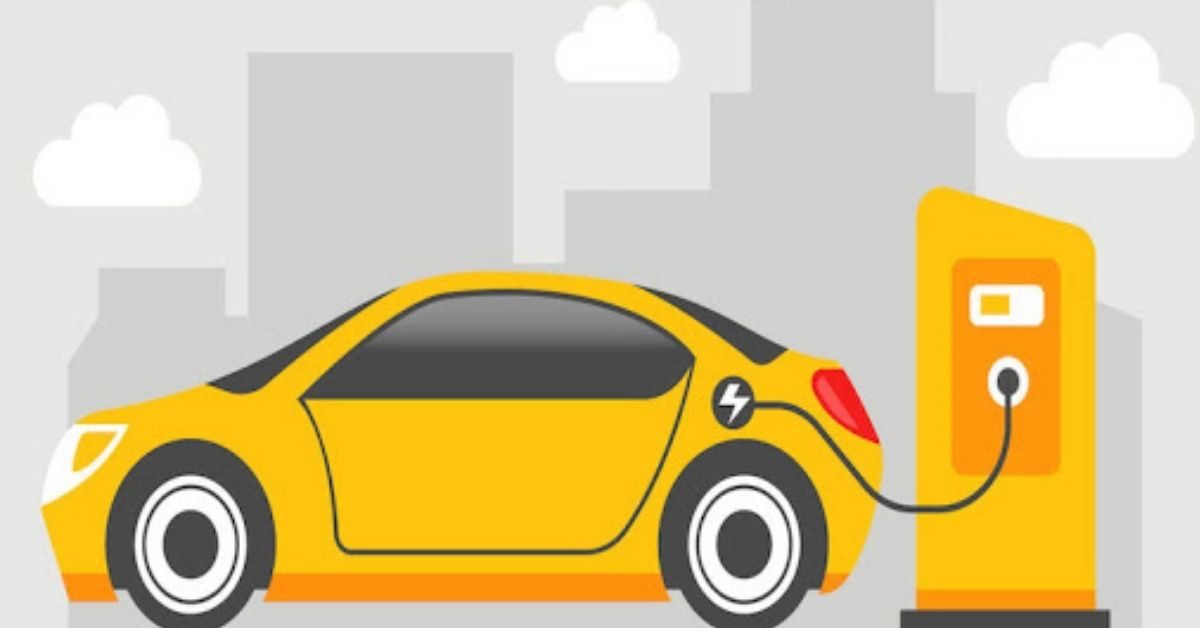In order to curb the spiralling oil costs, increasing dependence on crude oil imports, and grasping vehicular pollution, the govt. of India has urged vehicle manufacturers to ramp up production of Electric Vehicles (EVs). The zero-emission EVs manufacturing costs in the country are likely to be reduced with the substantial decline in prices of lithium-ion batteries, a key component. The recent policy shift adopted by the Union Government in the annual Budget 202l-22 to switch to alternative technologies like hydrogen fuel cell-driven EVs, and announcing scrappage scheme to help boost manufacturing of EVs to meet domestic demand spike and subsequently can also push exports from the country.
EVs market in India
Indian EVs manufacturing is currently at a nascent stage with barely one per cent of the total vehicle sales. Much of the EVs in the domestic market are low-speed electric scooters (less than 25km/hr) that do not require registration and licenses and most of them run on lead batteries to keep the prices low. Besides this low life of batteries and battery failures have become key restrictive factors for their sale. Even though some manufacturers have taken great initiatives to install charging stations, it has witnessed a very limited success.
But the segment has the potential to grow exponentially depending on the incentives offered by the government. Of late, some of the state governments have taken initiatives to become manufacturing hubs for EVs in the country.
On the domestic market front the Union government under its flagship programme ‘Make in India’, is considering implementing a temporary import duty cut for EVs to pave the way for major EV automakers like Tesla to set their foot in Indian EV market and create much needed charging infrastructure and other key components in the country. Currently, India is imposing about 60 per cent of import duty on cars that are priced below $40,000 and 100 per cent for those above that price.
Further, for promotion of electric vehicles in the country, GST on such vehicles has been reduced from 12 per cent to 5 per cent; GST on chargers/ charging stations for electric vehicles has been reduced from 18 per cent to 5 per cent.
The central govt has also advised state governments to waive road tax on EVs to help minimise initial production cost of these vehicles. As per the Union government estimates, electric vehicles will form 30 per cent of all private cars, 70 per cent of commercial vehicles, 40 per cent of buses and 80 per cent of two- and three-wheeler sales by 2030.
In July 2021, Maharashtra government under its Electric Vehicle Policy 2021-2025, took initiatives to facilitate adoption of electric vehicles through price drop incentives and subsidies for both consumers and manufacturers. The new revised Faster Adoption and Manufacturing of Hybrid and Electric Vehicles (FAME II) incentive of Maharashtra has an outlay of Rs 9.3 billion ($124.97 million) and intends to make the state India’s top producer of battery EVs in terms of annual production capacity. The state govt’s EVs policy includes objectives such as attaining 25 per cent electrification of public transport and last mile delivery vehicles by 2025, converting 15 per cent of the total 18,000 MSRTC existing bus fleet to electric vehicles, and establishing targeted charging infrastructure.
Epsilon Advanced Materials Pvt has proposed to set up the first manufacturing unit for lithium-ion battery parts in the country in the state of Karnataka. The company plans to invest 60 billion rupees ($807 million) to produce 100,000 tonnes of synthetic graphite anode by 2030, or about 10 per cent of estimated global demand. Currently China has been producing more than 80 per cent of the world’s supply of these anodes, which are the negative electrode in lithium-ion batteries and account for a quarter of a cell’s components.
Problems associated with charging infrastructure and components
The development of electric vehicles production and market in India depends on the expansion of chagrining infrastructure and other auto components by automakers. But currently the country imports ten times more auto components from China than it exports. China is the leading manufacturer of EVs and battery technology in the world with up to 60 per cent of the market share. The gap in imports and exports is posing a threat to the local auto component manufacturing ecosystem.
The non-existent hardware manufacturing base in India has been compelling the Original Equipment Manufacturers (OEMs) to depend more on Chinese imports. According to the experts in the EV manufacturing segment, India is largely dependent on the DC motors from China. Moreover, there is no established EVs part making ecosystem in India, which is forcing the EV auto makers to import electrical components, and steering gears.
If the EVs market in India has to thrive both domestically and internationally through exports, following pointers need timely attention for the industry. Indigenous technology development is imperative when it comes to manufacturing capability for powertrain components such as motors, and power electronics.








